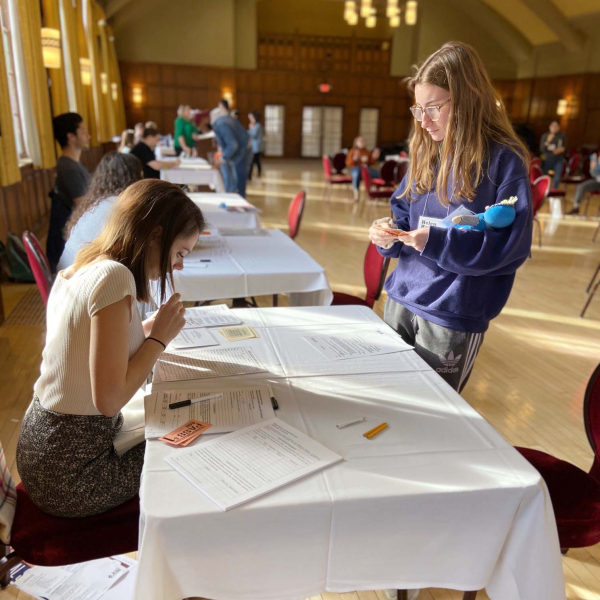Students Attend the Biannual IPE Poverty Simulation

Students from five University of Michigan health science schools participated in a Poverty Simulation at the Michigan League as a part of a Service-Learning for Health Professionals Course (one of the several dozen multidisciplinary courses on campus that meet collaborative competencies recognized by the Michigan Center for Interprofessional Education). The course brought students from the College of Pharmacy as well as the Schools of Nursing, Kinesiology, Social Work, and Public Health. The course is led by Dr. Karen Farris, the Charles R. Walgreen III Professor Pharmacy Administration and Chair, Department of Clinical Pharmacy. Dr. Farris also has an appointment at the School of Public Health.
Students, divided into family units, experienced a simulated month as a member of a low-income household. They were tasked with navigating through stations representing everything from schools, social services, grocery stores, and health-care providers. Students then sought access to basic human needs despite limited financial, transportation, and other resources.
Ashley Berry, a P1 volunteer stationed at the health services station, predicted that she would not get much traffic as people often sacrifice seeking medical services – opting to use their money on groceries and utilities instead.
The biannual event gives students insight into the very real struggles their eventual patients will face. Caitlin Ferguson, College of Pharmacy program manager and event organizer, noted that the students took the experience to heart. “The stress that the students feel during the hour-long simulation is very real.” While the simulation event is only a small window into what more than 47 million Americans consider a reality, the hope is to create health care professionals that can enter the workforce equipped with empathy, patience, and understanding.



